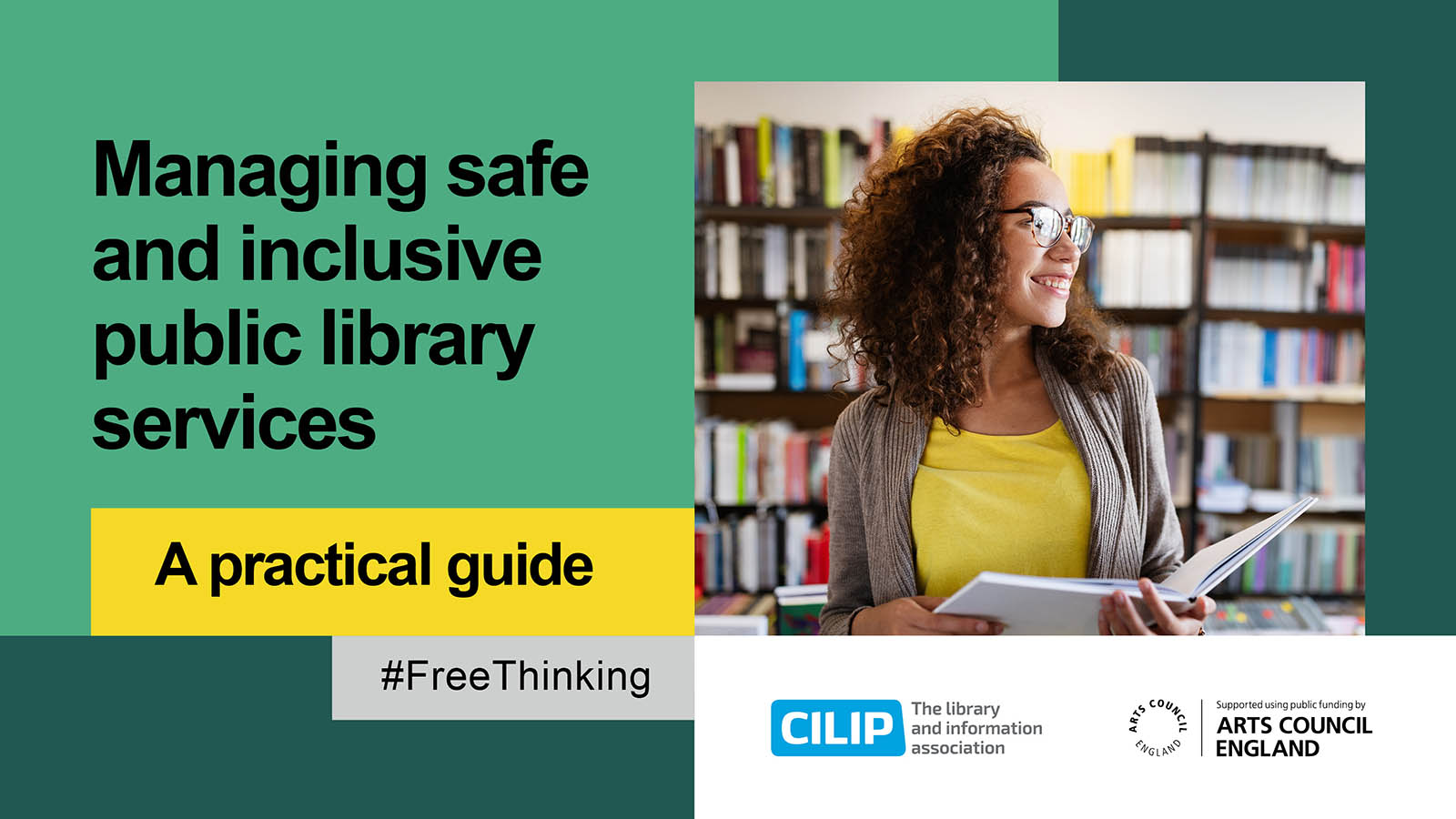CILIP’s New Guidance for Public Library Professionals: Managing Safe and Inclusive Services
Category: News

Managing Safe and Inclusive Public Library Services: A practical guide launches today, to provide a clear decision-making framework to support public library services as they deal with complex and challenging issues.
Included with the guidance are checklists, a slide deck for use in presentations to support engagement in your library, and other resources, to make Managing Safe and Inclusive Public Library Services practicable and accessible.
Based on the best currently available knowledge and experience and developed in consultation with library workers and leaders in public, school and prison libraries, the guide is underscored by a core set of ‘key principles’ which draw on CILIP’s Ethical Framework.
These principles provide library staff with a clear ‘decision-making framework’ when dealing with complex and challenging issues. They can be applied in four specific contexts:
- Development and management of library stock
- Provision of public internet access
- Appropriate use of public spaces (including meeting and event spaces)
- Provision of publicly accessible events and activities
CILIP produced the guide with funding from Arts Council England. It is based on and replaces the earlier document Guidance on the Management of Controversial Materials in Public Libraries, published by the Museums, Libraries and Archives Council (MLA) in 2008.
When the original guidance was published, it was against a backdrop of public concern about radicalisation and extremism. As CILIP came to renew this guidance, it was in the context of renewed concerns about freedom of expression, online harms and the marginalisation of entire communities because of their identity. These issues highlight the central challenge for librarians and library staff wishing to deliver safe, trusted and inclusive services for their communities, including learning communities in schools and prisons.
What has not changed in the intervening 15 years are the fundamental principles that lie at the heart of our professional ethics. The library service must maintain its focus on intellectual freedom and freedom of expression as core pillars of our democracy.
It is in the nature of such guidance that it will adapt as practice evolves over the coming years. This guide should therefore be regarded as a living document and a source of ongoing reference for library staff.
CILIP CEO Nick Poole said:
‘Libraries exist to ensure that everyone everywhere enjoys the freedom to read, to ask questions and to learn, without fear or favour. In today’s increasingly polarised world, it is more important than ever to ensure that our sector is clear in its opposition to censorship and the promotion of the intellectual freedom of our users. Libraries should not be a place to hide from difficult ideas, but to ensure that difficult ideas can be critiqued in their proper context. Thanks to the support of Arts Council England, we have provided this guidance as a point of reference for library workers everywhere on how to navigate increasingly challenging debates while remaining true to the core ethics and values of librarianship.’
Luke Burton, Director, Libraries, Arts Council England added:
‘This is an important piece of research which offers valuable guidance to the library sector. I’m sure that library colleagues will find it helpful when planning how to deal with complex issues so all library users and staff can enjoy libraries as safe, welcoming and inclusive spaces.’
Download the full guidance and printable resources for your library
For further reading, please also see the CILIPS EDI Commitment and our evolving EDI resource collections.